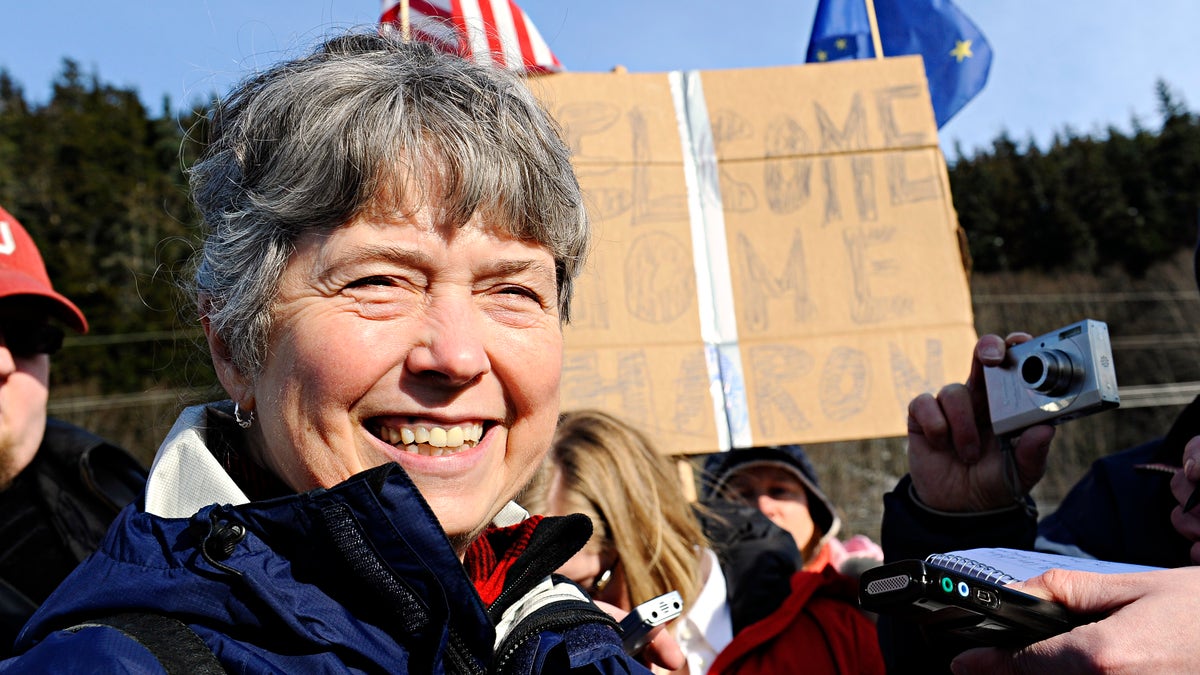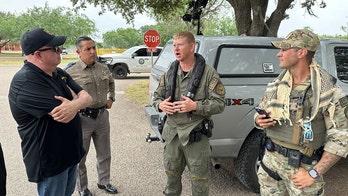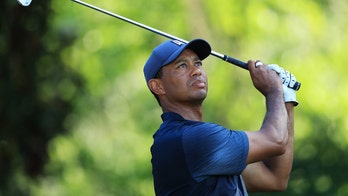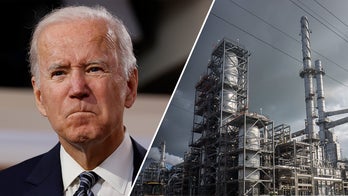
Rep. Sharon Cissna, D-Anchorage, answers questions from members of the press after disembarking the Alaska Ferry Matanuska, in Juneau, AK., Thursday, Feb. 24th, 2011. (AP) (AP2011)
An Alaska state lawmaker has declared war on the Transportation Security Administration's airport security methods after she refused to submit to a pat-down search at Seattle's airport when her false breast triggered an alert in the full-body scan, the second time in three months.
Having vowed to never endure another pat-down search and unable to board the flight, Rep. Sharon Cissna, a cancer survivor who has had a mastectomy, took a four-day detour via rental car, a small plane, taxicab and a ferry that ended Thursday near Alaska's capital city, where she was met by a small group of well-wishers and a bouquet of yellow flowers.
Cissna said travelers are "accidentally being abused by government," and she vowed to fight for changes in how the TSA deals with screening passengers, especially those with special health issues.
Cissna, who said she wants to work on a resolution laying out what needs to be done to change a policy that's "hurting people," is getting some help from her counterpart in Washington.
U.S. Sen. Lisa Murkowski, R-Alaska, has asked TSA Administrator John Pistole to clarify the agency's screening policy for passengers with special medical needs.
"This kind of invasive probing should not be the price of travel," Murkowski wrote in the letter. "I appreciate that the TSA has a difficult task in keeping air transportation safe. However, this incident highlights specific privacy concerns that must be addressed. I am concerned there is an imbalance between safety requirements and overly invasive procedures targeting air travelers who have undergone mastectomy surgeries or use prosthetics."
A TSA spokesman said the agency looks forward to responding directly to Murkowski.
"Our security officers are trained to work with each individual traveler to ensure a respectful screening process, while providing the best possible security for everyone," spokesman Greg Soule said in a statement to FoxNews.com. "We are sensitive to travelers' concerns, but security is not optional."
"We have reached out to Rep. Cissna's staff to explain that our responsibility is to keep the traveling public safe and discuss some of the policies in place to carry out this mission, including conducting pat downs to resolve alarms during screening," he continued. "At any point, any passenger can request to be screened in a private location and can have a witness present. If a person is unwilling to complete the screening process, he/she will not be able to board his/her flight."
Cissna's case is from far isolated and has turned the petite 68-year-old into an unlikely hero, applauded on Facebook and the state House floor for her stand.
"I feel really proud of Sharon," House Democratic leader Beth Kerttula said. "I think she stood up for thousands of Americans who are saying, why, when a woman has had a mastectomy, does she have to go through this?"
Since new screening measures took effect last year, the American Civil Liberties Union has reported receiving more than 1,000 complaints from travelers -- including breast cancer survivors -- who said they endured intrusive pat-downs. Among other things, the travelers claim TSA agents patted their genitals and ran fingers through their hair or along their bras or waistbands.
At least one federal lawsuit has been filed over the pat-downs. The plaintiffs in the case, pending in the District of Columbia, include a breast cancer survivor from California and a Kentucky man that the lawsuit says was presumably singled out for a pat-down due to an enlarged testicle.
The scanners became prominent after a man was accused of trying of blow up a plane using explosives hidden in his underwear in late 2009.
The agency, on its website, says travelers won't be asked to remove prosthetic devices but "security officers will need to see and touch" them as part of the screening process.
The TSA insists it tries to make the process as comfortable as possible, allowing for passengers singled out for pat-downs to be screened privately and to have a travel companion with them. It has made cards available as a way for travelers to more discreetly inform TSA agents of any medical conditions or disabilities they have. But the cards don't exempt screening.
The Associated Press contributed to this report.




